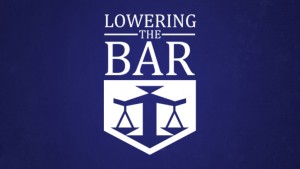
- “Kevin, do you have a category for people who accidentally set themselves on fire?” a reader asked this week. “Because you should.” The answer is “not specifically,” because that’s only funny if the person who did it was trying to commit arson—which, to be fair, is what happened in the story he forwarded me. And then it can be very funny. That story in particular receives major bonus points because (1) what the arsonist set on fire was his pants, and (2) it includes security-cam footage of that man “fleeing the chaotic scene with his pants on fire.” Recommended.
- Having said that, searching this site for the word “fire” does return highly relevant results, in that six of the entries on the very first page involve people who accidentally set themselves on fire. Three of those were about the Florida lawyer whose pants caught fire (it was probably arson) as he was beginning his closing argument in an arson case, something that still boggles the mind. Also recommended.
- On May 20, a Vermont court dismissed a lawsuit against the Burlington Free Press by a man who claimed it had not adequately covered his son’s performance in high-school basketball games. Lafayette v. Abrami (Vt. Super. Ct. May 20, 2025). According to the court, the plaintiff claimed “[t]his lack of coverage has hurt plaintiff’s son’s college prospects and caused plaintiff anxiety and stress, leading to uncontrollable vomiting, severe gastrointestinal distress, and panic attacks….” He sought compensatory and punitive damages for this outrage, but will get nothing.
- A former U.S. Army sergeant pleaded guilty last month to violating the Espionage Act by trying to sell information to the Chinese government. A plea was probably a good idea, given that evidence showed he had googled the phrase “can you be extradited for treason” (answer: it depends where you flee to) and had created a memo containing classified defense information that he titled “Important Information to Share with Chinese Government.”
- I and apparently hundreds of other lawyers have received emails purporting to be from a woman who wants a lot of money from Amazon, but hasn’t explained why. The first email, sent last month, said only “I want 1 trillion from Amazon over ‘Chicken.'” Of course I was intrigued but didn’t have time to look into it then. Yesterday we got a second email from the same address, this one saying that “[t]here was a ‘transaction for 1 trillion that was supposed to be sent to Regions Bank at the corner of Sandy Plains and Shallowford.” There is a Regions Bank at that address in Marietta, Georgia, but if they are missing a trillion dollars, they don’t seem to have reported it yet. Anyway, if you know anything about the missing $1 trillion, or you are willing to represent Kimberly about “Chicken,” could you contact her directly? Thanks.
- Of course that would by no means be the largest claim ever made in litigation. It would fall short by something like 24 orders of magnitude, in fact. See “Two-Undecillion-Dollar Demand Spells Trouble for Au Bon Pain” (May 13, 2014). Unless there’s been a bigger one more recently, though I think that’s doubtful. See “Twenty-One-Octillion-Dollar Demand Still Not a Record” (Apr. 21, 2022) (criticizing that claimant for a lack of ambition).
The following are recent additions to the National Library of Scotland's digital mapping platform at https://maps.nls.uk:
Finding placenames research guide
Ten searchable lists of placenames (or gazetteers) dating from the 1580s through to the present day, including national surveys and mapping initiatives by Timothy Pont, William Roy, John Thomson, and the Ordnance Survey. The guide is available in the Research Guides section at https://maps.nls.uk/guides/placenames/.
Signet Library maps of Great Britain and the World, 1640s-1930s
This set of 137 maps relating to Great Britain and the World, comes from the library of the Society of Writers to HM Signet (www.wssociety.co.uk) in Parliament Square, Edinburgh. Additions include 402 Signet Library maps of Scotland, as well as maps of England, Wales, Ireland, and overseas. There are also 20 Ordnance Survey One-Inch to the mile Old Series maps of England and Wales included. The collection is available at https://maps.nls.uk/collections/signet/.
The latest news and developments from the mapping department can be found at https://maps.nls.uk/additions/.
Chris
Order Researching Ancestral Crisis in Ireland in the UK at https://bit.ly/4jJWSEh. Also available - Tracing Your Belfast Ancestors, Tracing Your Irish Ancestors Through Land Records, Sharing Your Family History Online, Tracing Your Scottish Family History on the Internet, Tracing Your Irish Family History on the Internet (2nd ed), and Tracing Your Scottish Ancestry Through Church and State Records - to purchase, please visit https://bit.ly/ChrisPatonPSbooks. For purchase in tthe USA visit https://www.penandswordbooks.com. Further news published daily on The Scottish GENES Facebook page.

